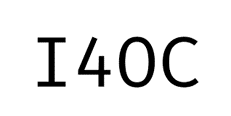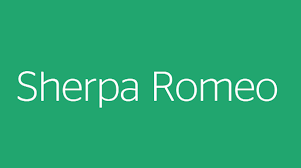Self-efficacy and university digital competence in times of Covid-19
DOI:
https://doi.org/10.18050/psiquemag.v11i2.2110Keywords:
Skills, Pandemics, University studentsAbstract
The objective of this study was to determine the relationship between self-efficacy and digital competence of university students at a public university in the city of Lima. For its realization, a non-experimental design of correlational level was chosen. The sample consisted of 110 students selected by convenience sampling. Two instruments were applied to evaluate the study variables, whose validity was determined by expert judgment. A pilot test was carried out to be able to resolve the internal consistency of the instruments of each of the variables using Cronbach's alpha, the results determined reliability coefficients of 0.915 and 0.961 for self-efficacy and digital competence respectively, which indicates that the information collected by the resulting instruments be reliable enough for the progress of the investigation. The results show the existence of a significant direct weak relationship between self-efficacy and digital competence. It was concluded that high levels of self-efficacy are related to high levels of digital competence.
References
Almerich, G., Orellana, N. y Díaz-García, I. (2015). Las competencias en TIC en el profesorado en formación y su relación con las creencias pedagógicas, la autoeficacia y la percepción del impacto de las TIC en la educación. En AIDIPE (Ed.). Investigar con y para la sociedad (pp. 589-597). Bubok. http://aidipe2015.aidipe.org/
Aragón, L. (2011). Perfil de personalidad de estudiantes universitarios de la carrera de Psicología. El caso de la facultad de Estudios Superiores Iztacala. Perfiles Educativos, 33 (133), 68-87. http://www.scielo.org.mx/pdf/peredu/v33n133/v33n133a5.pdf
Bandura, A. (1977). Self-Efficacy: Towards a Unifying Theory of Behavioral Change. Psychological Review, 84(2), 191–215. https://doi.org/10.1016/0146-6402(78)90002-4
Bernate, J., Fonseca, I., Guataquira, A., & Perilla, A. (2020). Digital Competences in Bachelor of Physical Education students. Retos, 41, 310-318. https://doi.org/10.47197/retos.v0i41.85852
Blanco, H., Martínez, M., Zueck, M, y Gastelúm, G. (2011). Análisis psicométrico de la escala autoeficacia en conductas académicas en universitarios de primer ingreso. Actualidades Investigativas en Educación, 11(3), 01-27. https://revistas.ucr.ac.cr/index.php/aie/article/view/10214/18077
Burgos-Torre, K., y Salas-Blas, E. (2020). Procrastinación y Autoeficacia académica en estudiantes universitarios limeños. Propósitos y Representaciones, 8(3), e790. http://dx.doi.org/10.20511/pyr2020.v8n3.790
Covarrubias, L. (2021). Educación a distancia: transformación de los aprendizajes. Telos, 3(1), 150-160. https://doi.org/10.36390/telos231.12
Diario Oficial de la Unión Europea (2018). Comunicaciones e informaciones. https://eur-lex.europa.eu/legal-content/ES/TXT/PDF/?uri=OJ:C:2018:189:FULL&from=RO
Díaz-Arce, D., & Loyola-Illescas, E. (2021). Digital competence in the context of COVID 19: a view from education. Revista Innova Educación, 3(1), 120-150. https://doi.org/10.35622/j.rie.2021.01.006
Estrada, E. (2021). Autoeficacia y procrastinación académica en estudiantes del séptimo ciclo de educación básica regular. Horizonte de la Ciencia, 11(20), 195-205. https://doi.org/10.26490/uncp.horizonteciencia.2021.20.777
Feldman, D., Davidson, O., Ben‐Naim, S., Maza, E. & Margalit, M. (2016). Hope as mediator of loneliness and academic self-efficacy among students with and without learning disabilities during the transition to college. Learning Disabilities Research & Practice, 31(2), 63-74. https://doi.org/10.1111/ldrp.12094
Flammer, A. (2001). Self -Efficacy. En N. Smelser, y P. Baltes. (Eds.). International Encyclopedia of Social & Behavioral Sciences (pp. 13812-13815). Latest Edition. https://doi.org/10.1016/B0-08-043076-7/01726-5
Ferrari, A. (2013). DIGCOMP: A Framework for Developing and Understanding Digital Competence in Europe. https://publications.jrc.ec.europa.eu/repository/handle/JRC83167
Gutiérrez, I. (2016). Perfil del profesor universitario español en torno a las competencias en tecnologías de la información y la comunicación. Pixel-Bit. Revista De Medios Y Educación, (44), 51-65. https://doi.org/10.12795/pixelbit.2014.i44.04
García, L. (2021). COVID-19 y educación a distancia digital: preconfinamiento, confinamiento y posconfinamiento. Revista Iberoamericana de Educación a Distancia, 24(1), 09-32. https://doi.org/10.5944/ried.24.1.28080
Gisbert, M., y Esteve, F. (2016). Digital Leaners: la competencia digital de los estudiantes universitarios. La Cuestión Universitaria, (7), 48-59. http://polired.upm.es/index.php/lacuestionuniversitaria/article/view/3359/3423
Hernández, C., Arévalo, M., y Gamboa, A. (2016). Competencias TIC para el desarrollo profesional docente en educación básica. Praxis & Saber, 7(14), 41-69. https://doi.org/10.19053/22160159.5217
Paz, F. (2021, 6 de marzo). Covid-19: hace un año Perú confirmaba su primer caso de coronavirus. Andina. https://andina.pe/agencia/noticia-covid19-hace-un-ano-peru-confirmaba-su-primer-caso-coronavirus-836289.aspx
Rodríguez, A. (2021). Competencias Digitales Docentes y su Estado en el Contexto Virtual. Revista peruana de investigación e innovación educativa, 1(2), 02-09. file:///C:/Users/DIEGO/Downloads/72129.pdf
Rojas, V., Zeta, A. y Jiménez, R. (2020). Competencias digitales en una universidad pública peruana. Revista Conrado, 16(77), 125-130. http://scielo.sld.cu/scielo.php?script=sci_arttext&pid=S1990-86442020000600125
Rosario-Rodríguez, A., González-Rivera, J. A., Cruz-Santos, A., y Rodríguez-Ríos, L. (2020). Demandas tecnológicas, académicas y psicológicas en estudiantes universitarios durante la pandemia por COVID-19. Revista Caribeña de Psicología, 4(2), 176-185. https://doi.org/10.37226/rcp.v4i2.4915
RVM Nº 087-2020-MINEDU. Aprueban la Norma Técnica denominada “Orientaciones para el desarrollo del servicio educativo en los centros de educación técnico-productivas e institutos y escuelas de Educación Superior, en el marco de la emergencia sanitaria por Covid-19”. Diario Oficial El Peruano (2020). https://busquedas.elperuano.pe/normaslegales/aprueban-la-norma-tecnica-denominada-orientaciones-para-el-resolucion-vice-ministerial-n-087-2020-minedu-1865307-1/
Zajacova, A., Lynch, S. & Espenshade, T. (2005). Self-efficacy, stress, and academic sucess in college. Research in Higher Education, 46(6), 677-706. https://link.springer.com/article/10.1007%2Fs11162-004-4139-z
Downloads
Published
How to Cite
Issue
Section
License
Copyright (c) 2022 PsiqueMag

This work is licensed under a Creative Commons Attribution-NonCommercial-NoDerivatives 4.0 International License.
You are free to:
- Share — copy and redistribute the material in any medium or format
- The licensor cannot revoke these freedoms as long as you follow the license terms.
Under the following terms:
-
Attribution — You must give appropriate credit, provide a link to the license, and indicate if changes were made. You may do so in any reasonable manner, but not in any way that suggests the licensor endorses you or your use.












